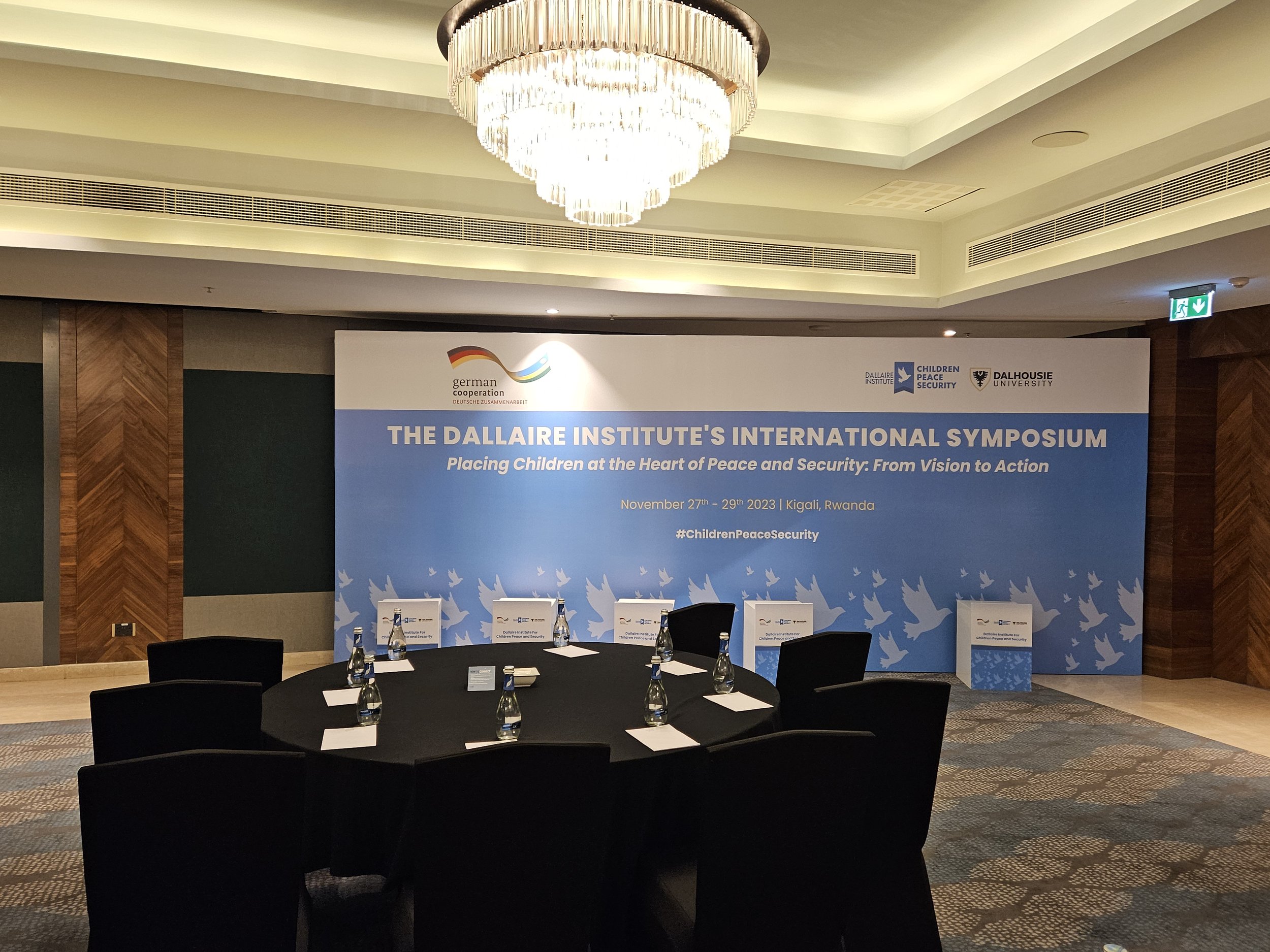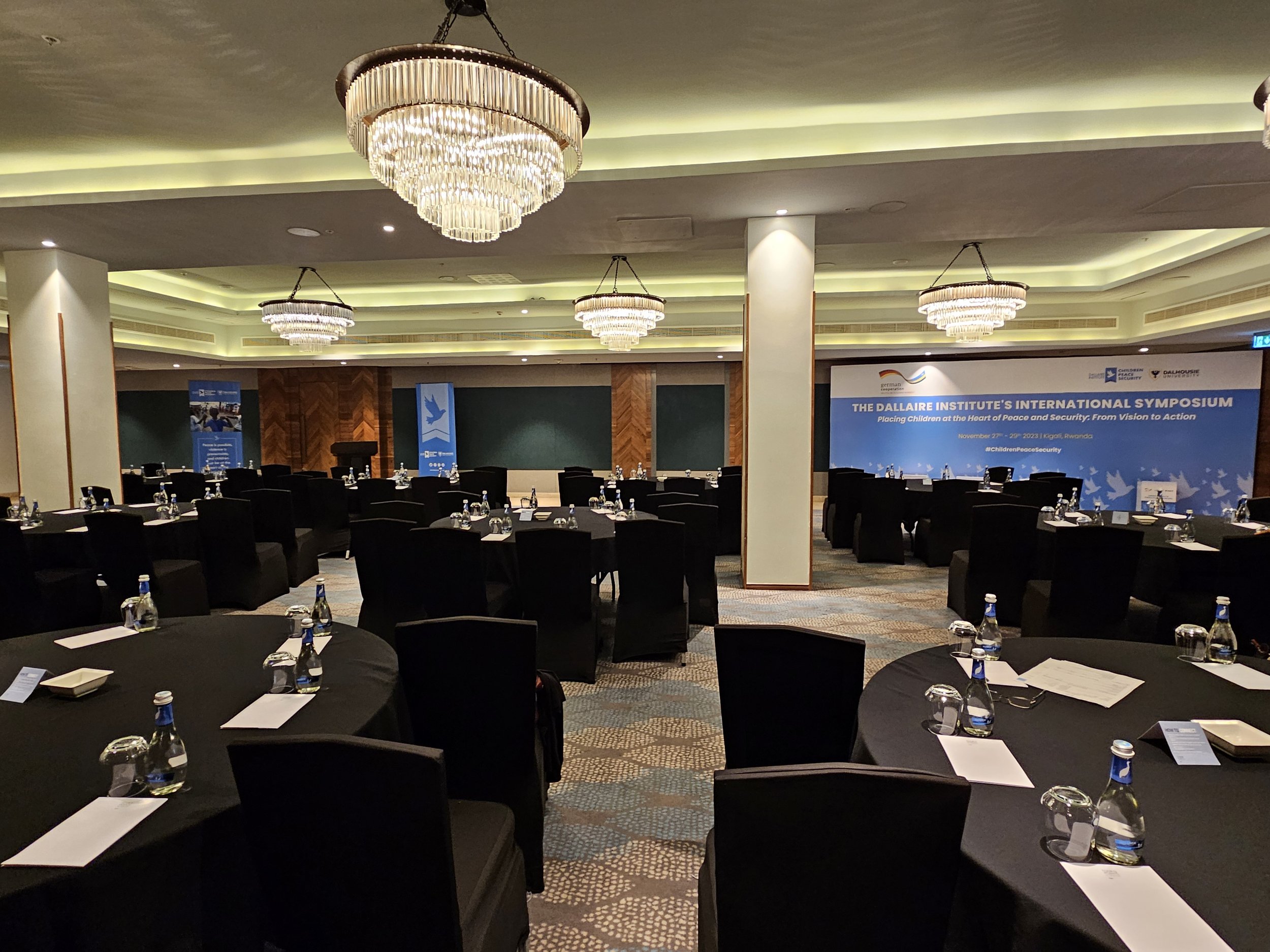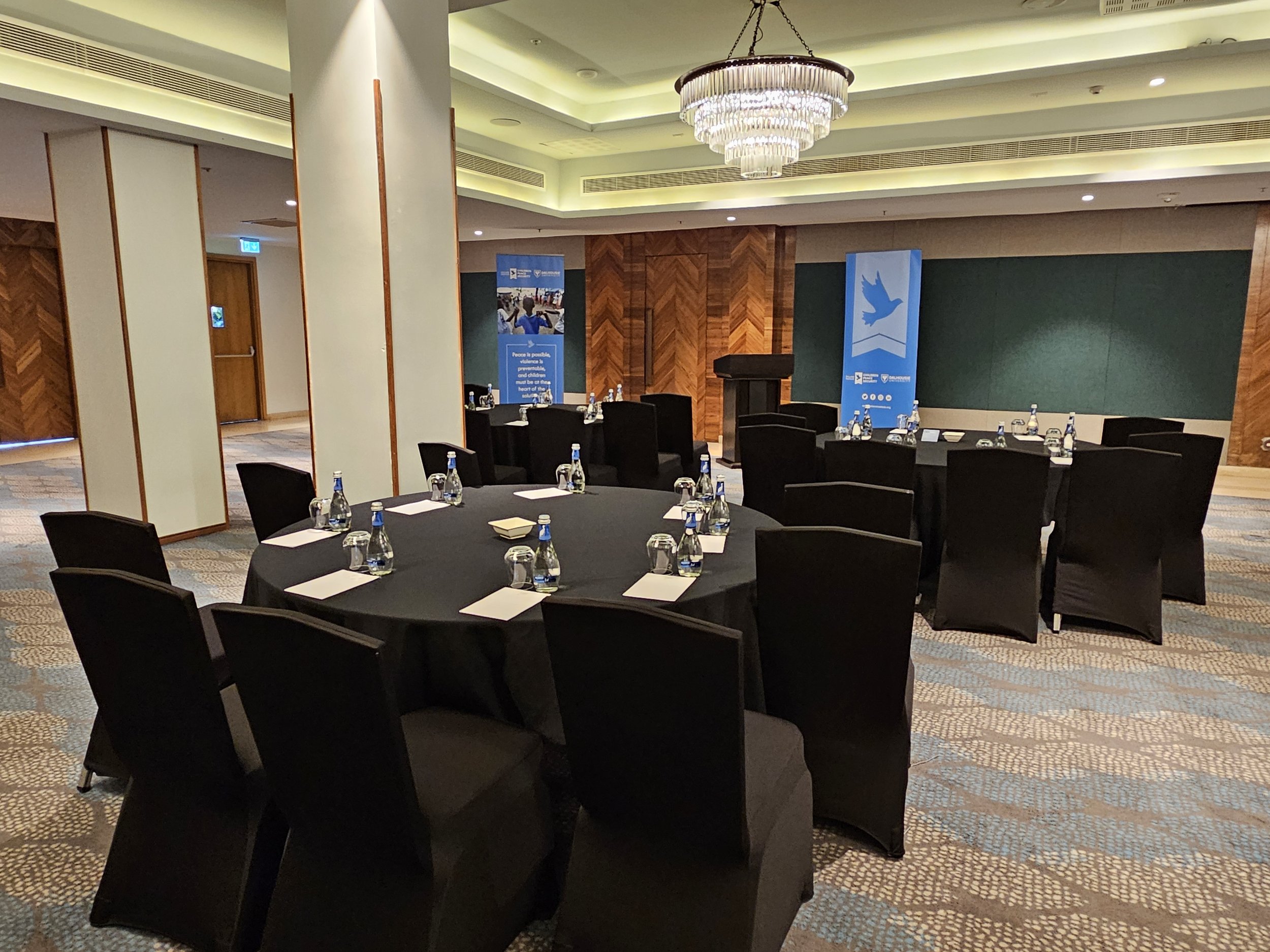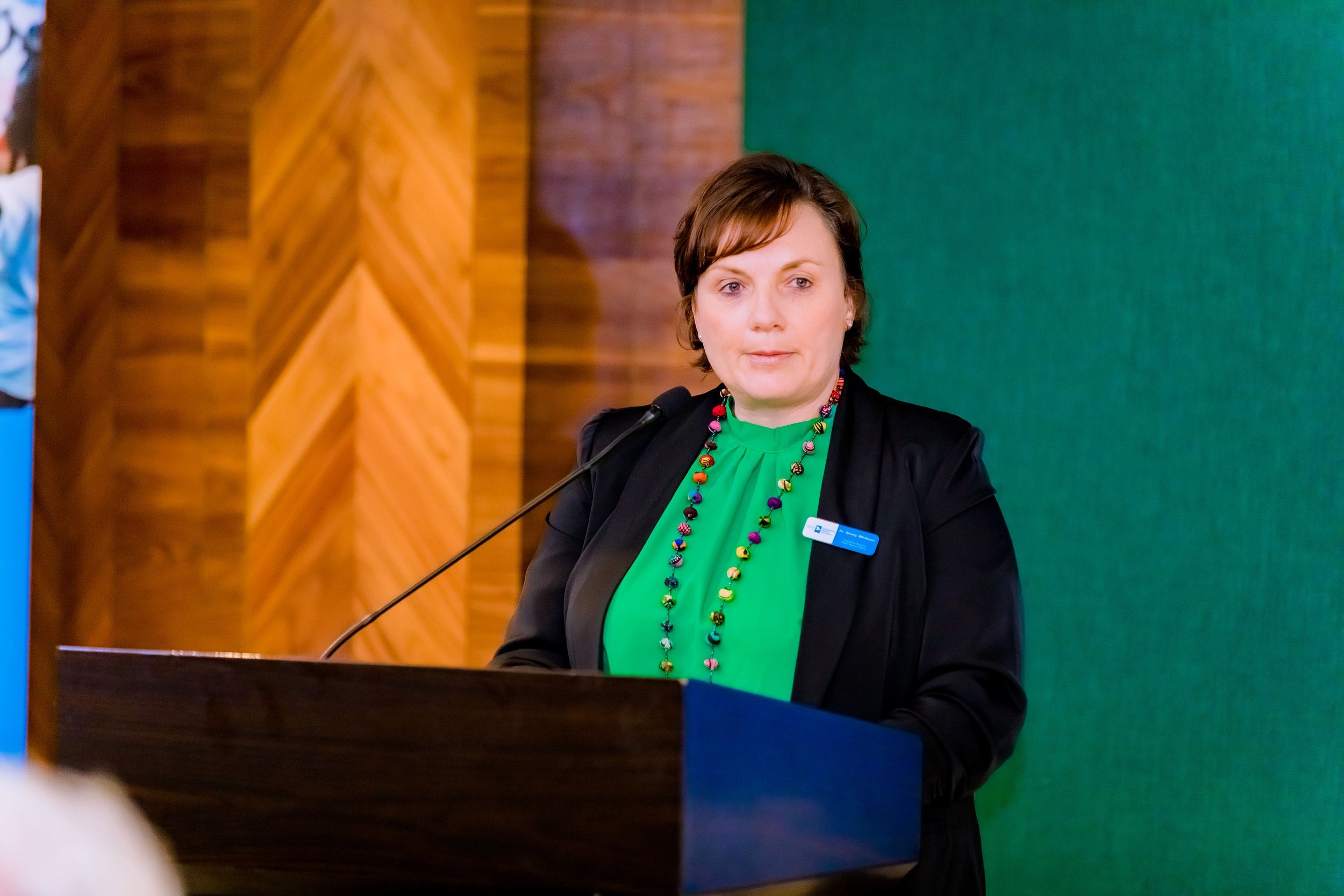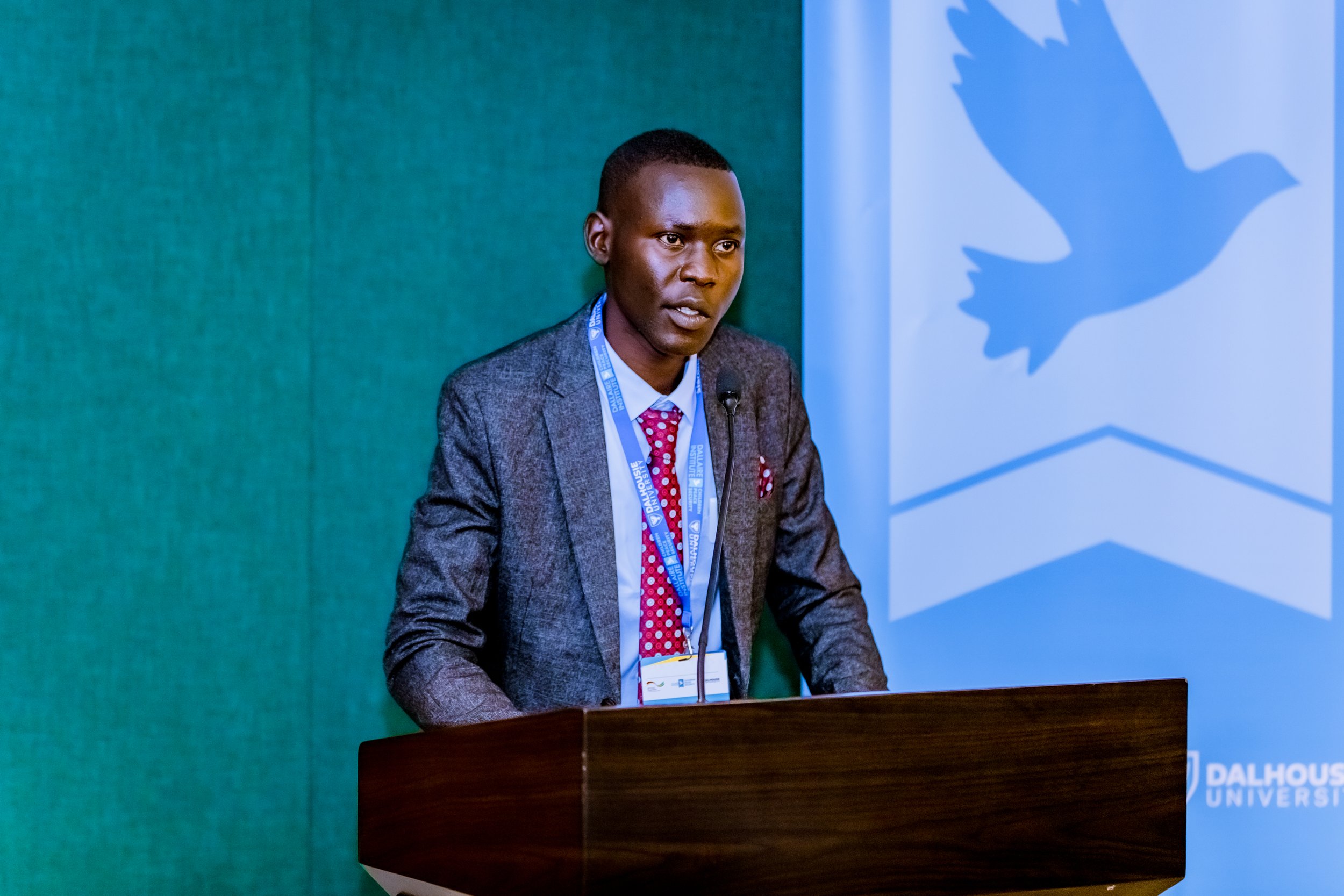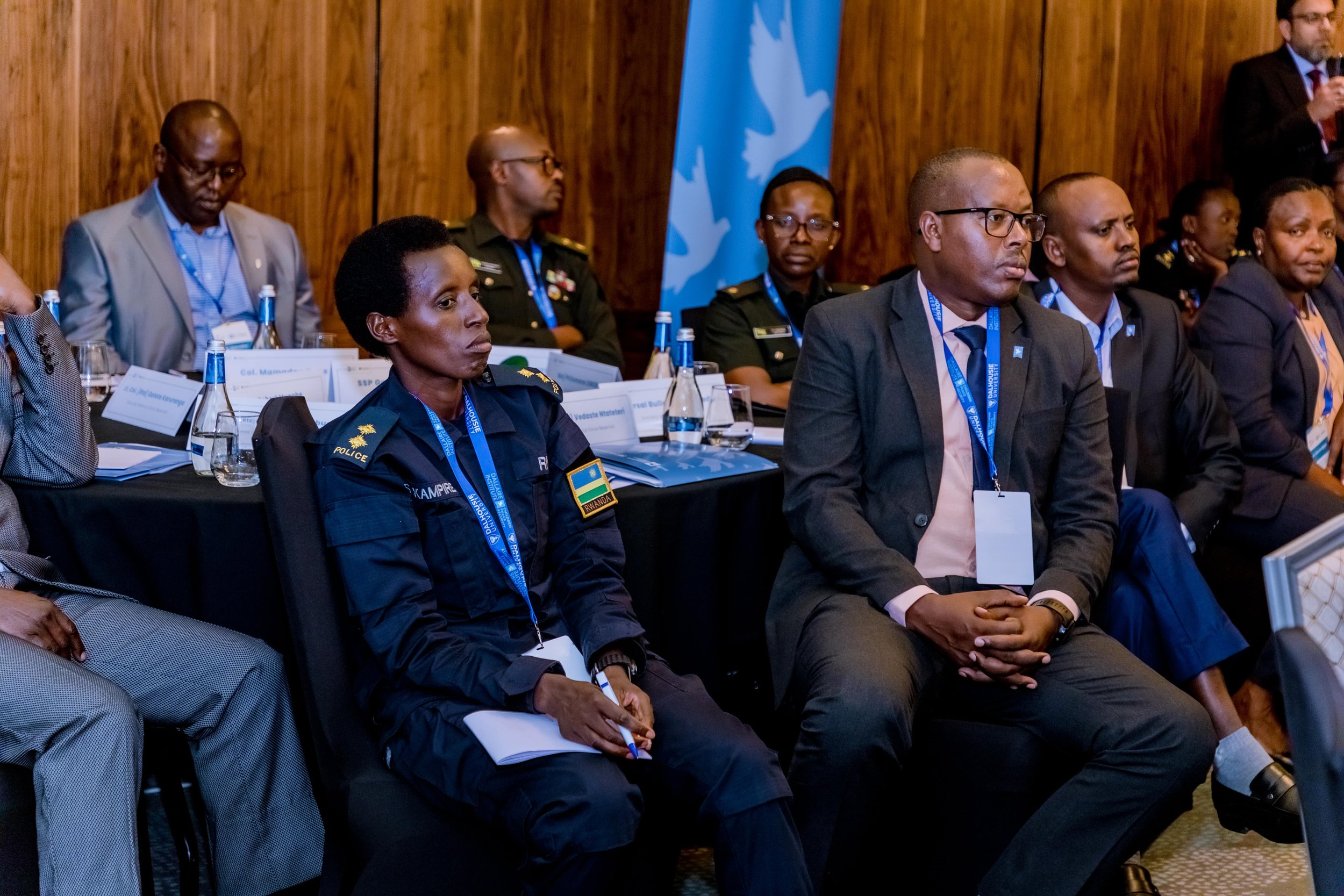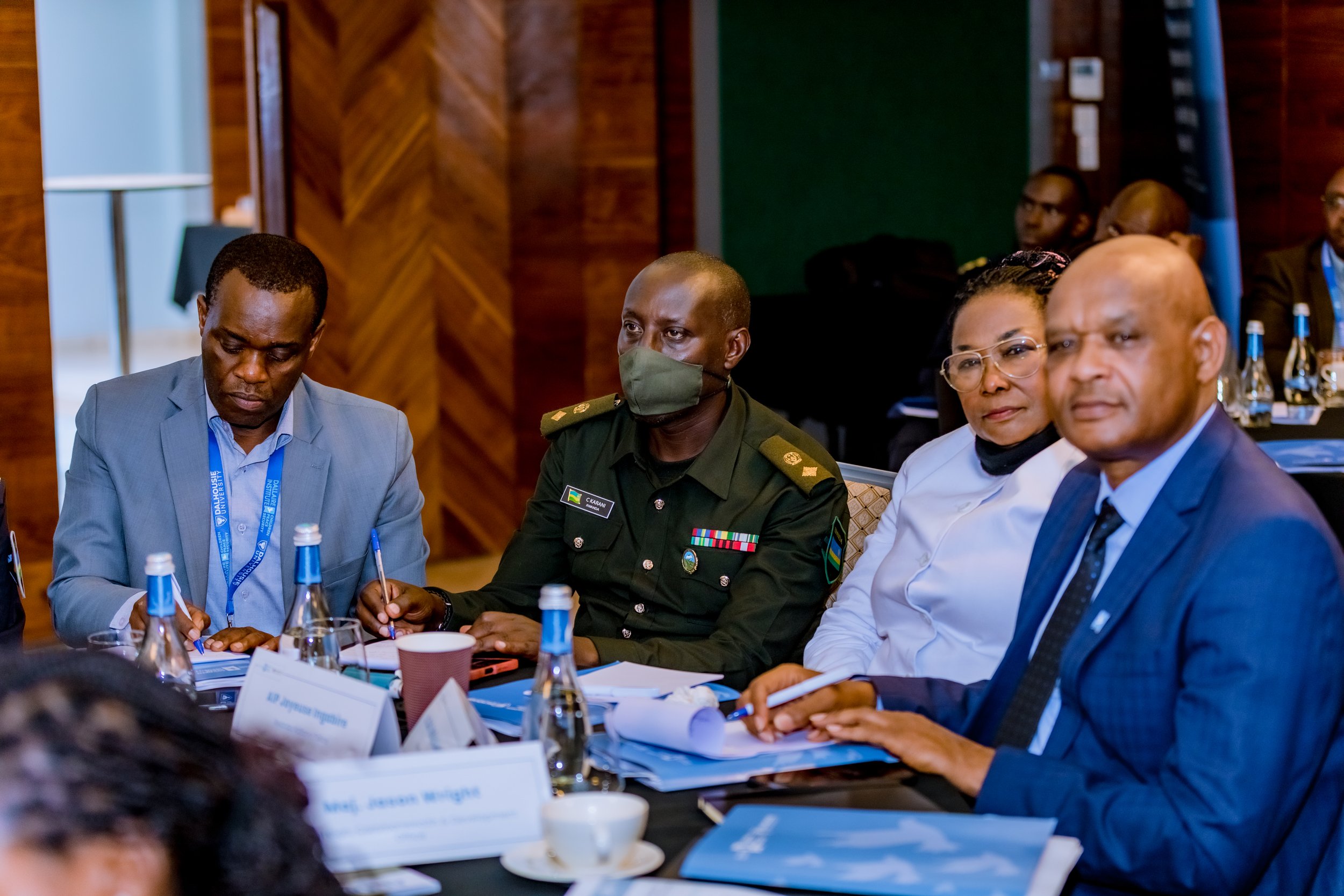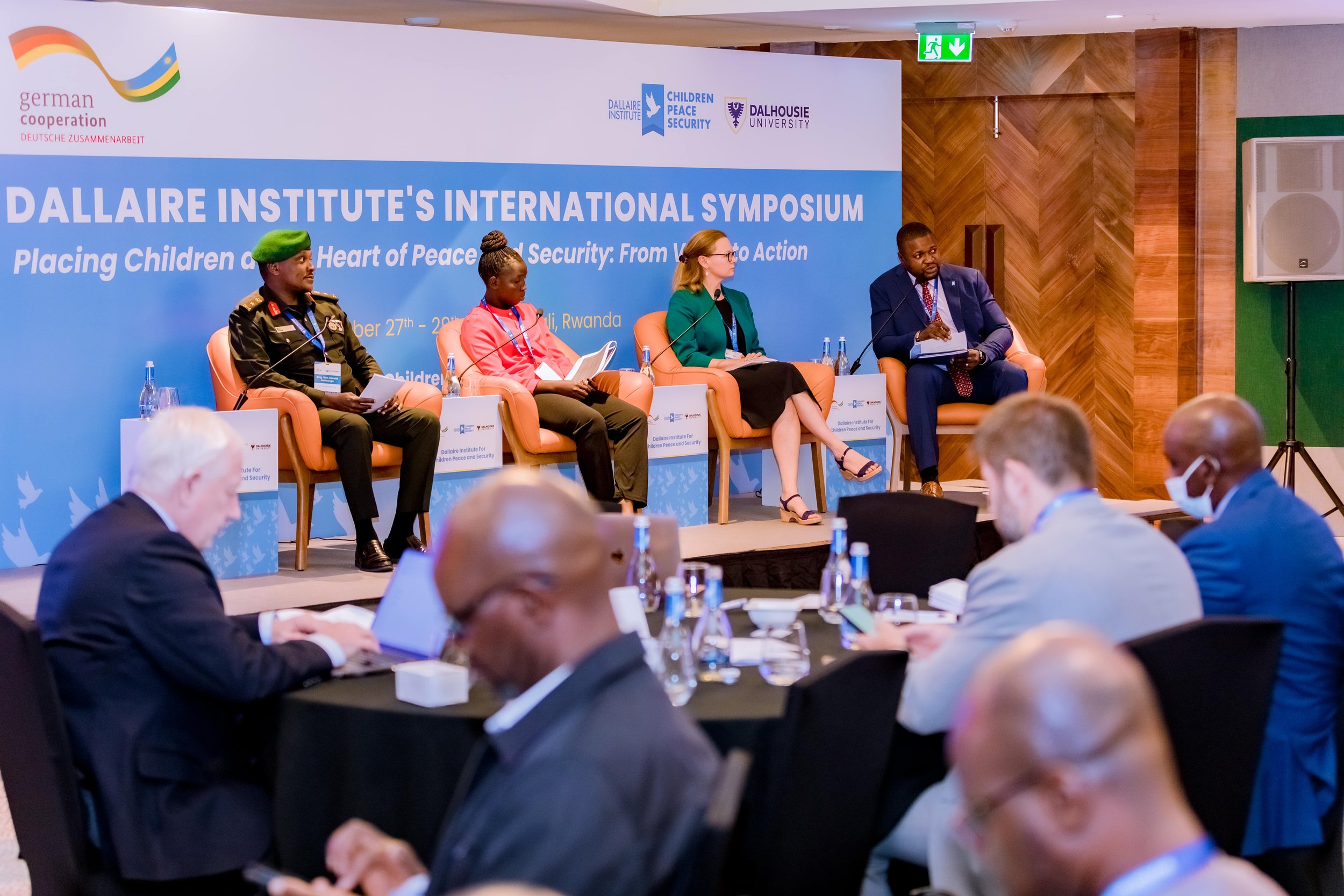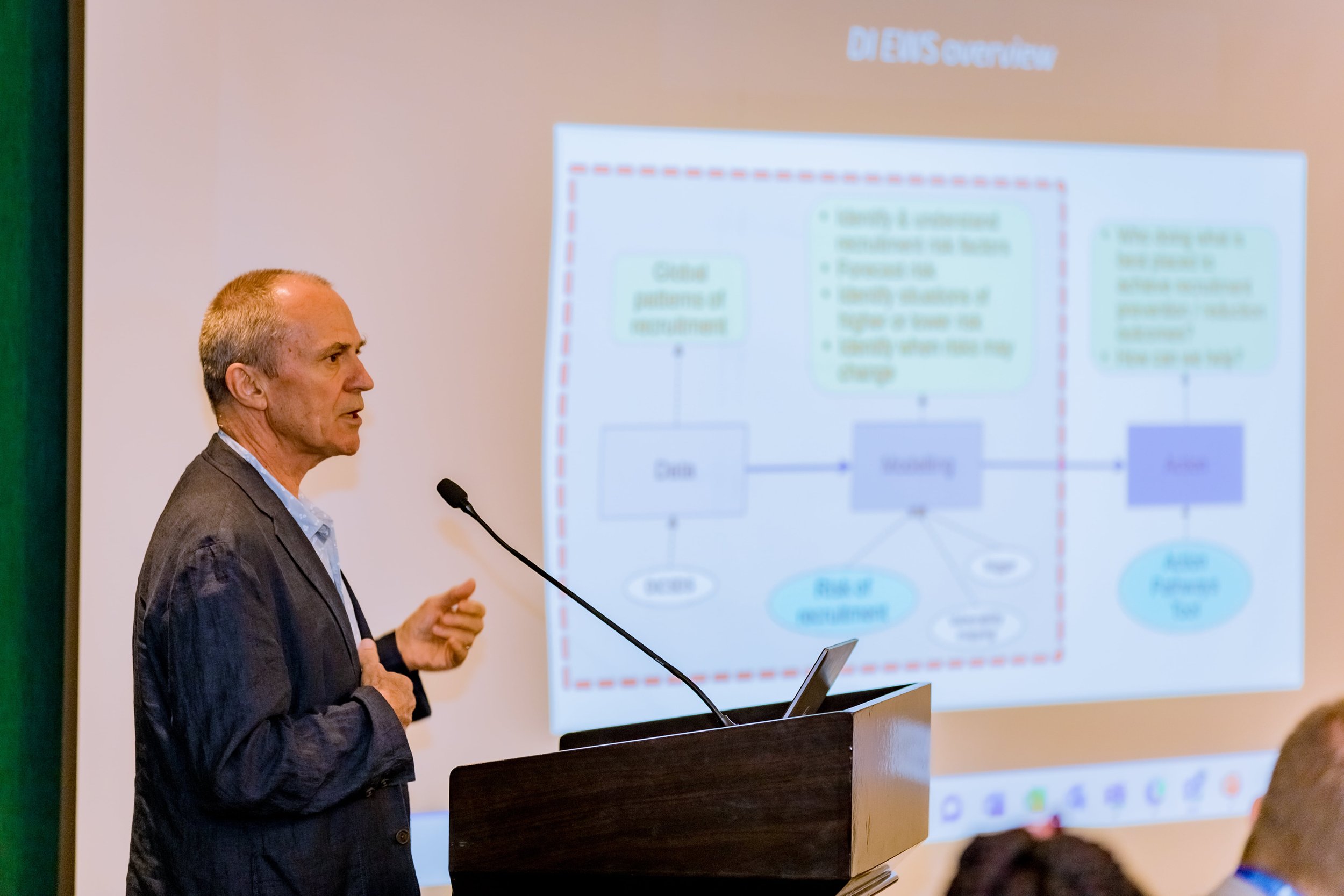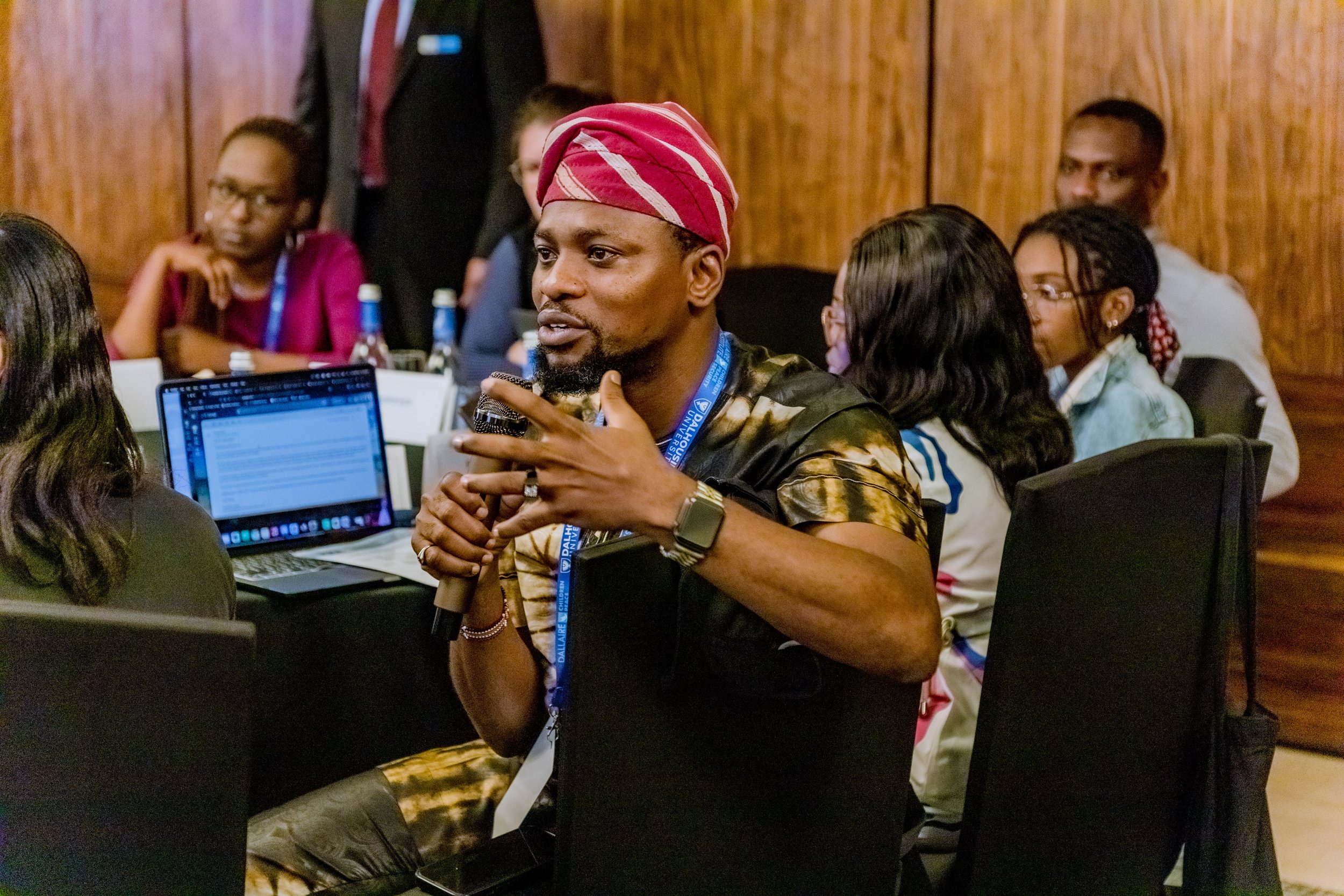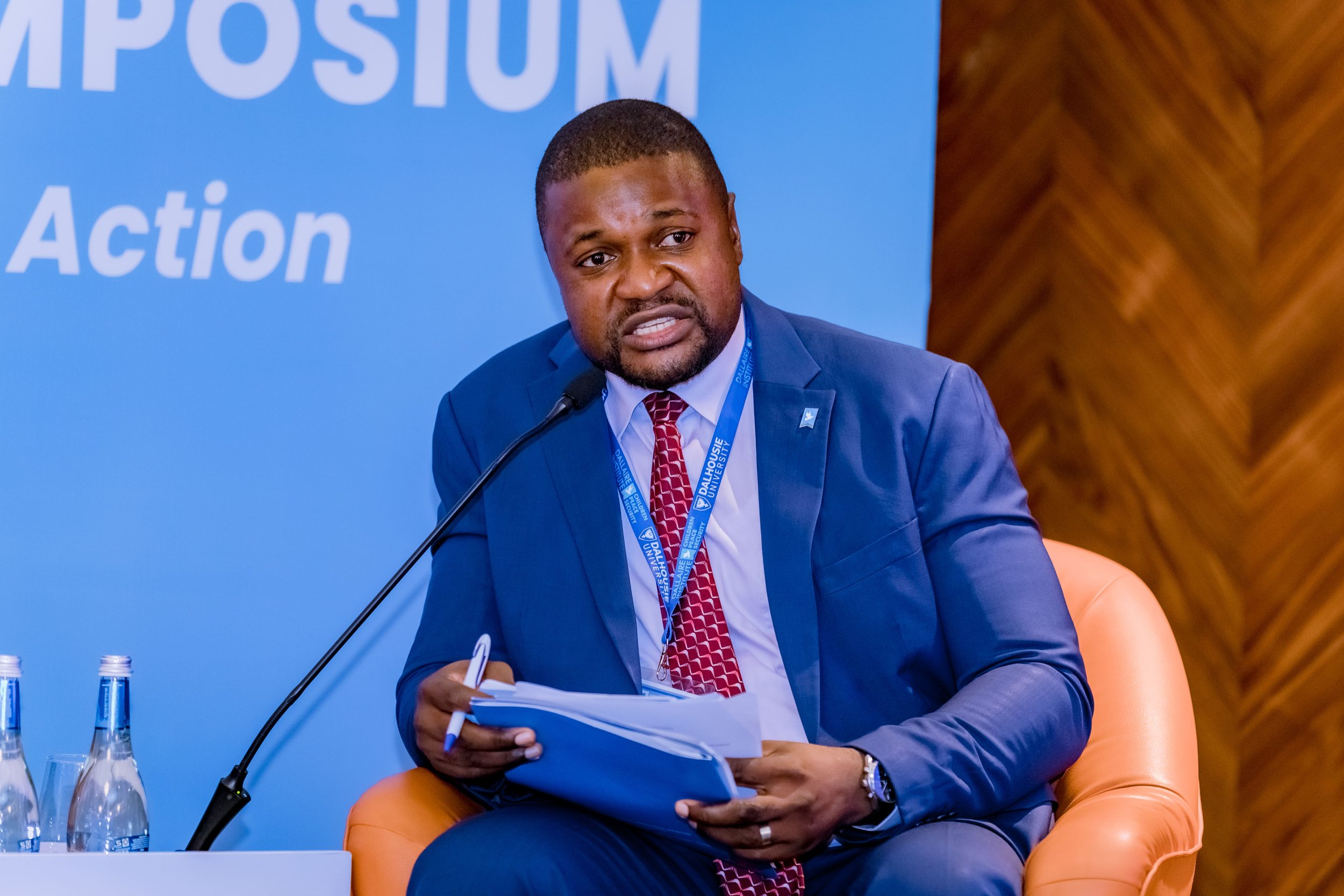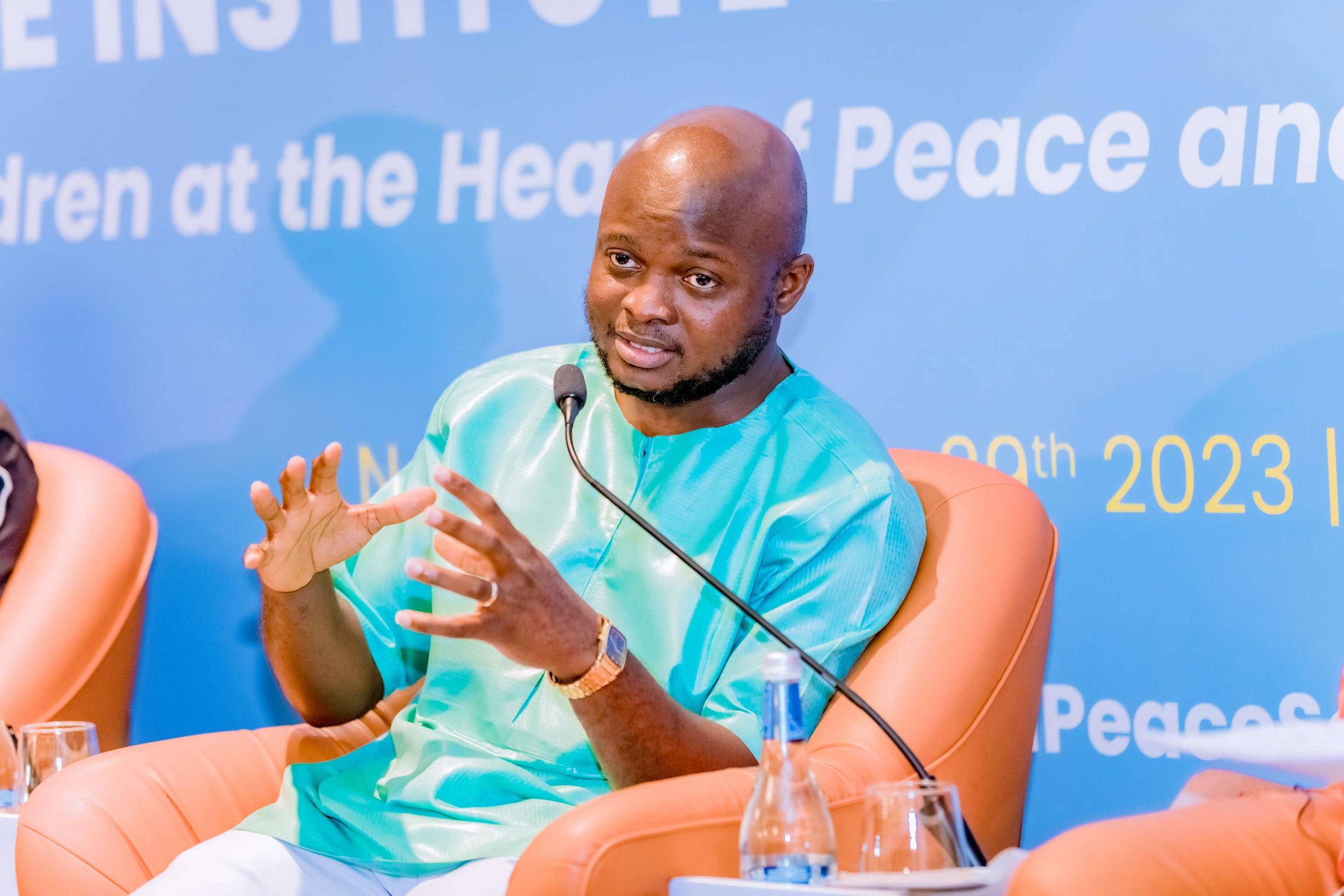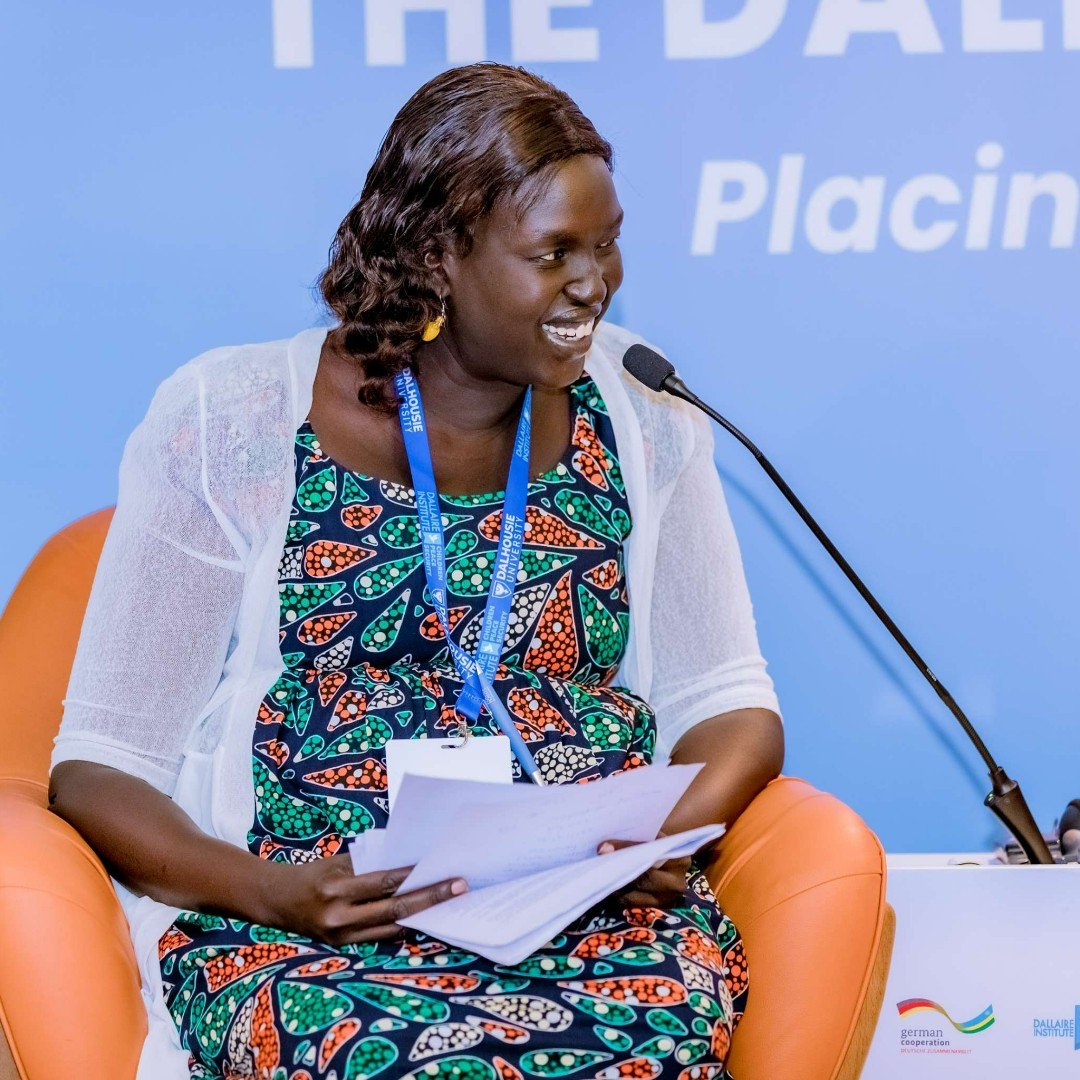#V2AKigali2023: The 5th Dallaire Institute International Symposium
“The time for new solutions must not wait another 25 years. As practitioners, experts, policymakers, community leaders, and security sector actors, I need to feel and hear your commitment over these next few days, a commitment to create options and find solutions that prioritize the protection of children as central to achieving global peace and security.”
- Dr. Shelly Whitman, Executive Director
With months of programming, logistics, and finance meetings behind us, staff from the Dallaire Institute’s Halifax headquarters made our way to join colleagues from the United States, the Democratic Republic of Congo, South Sudan, Mozambique and Rwanda in Kigali for our annual symposium in November. We all felt a frisson of excitement that helped us zip past long layovers, even longer flights, and unavoidable cricks in the neck with a smile.
Some of us were visiting Kigali for the first time but could do no more than gape at its pristine streets and marvel at the general sense of order; we had business to attend to – last minute touches to ensure that roles were assigned and understood, and everything was set for a successful event.
The final run-through.
Day one of the symposium began with our founder, Lt-Gen (retd) the Hon. Roméo Dallaire, reminding everyone present of the increase in the number of reported cases of grave violations against children. He charged participants to identify what is needed to move the children, peace, and security agenda forward and increase the endorsement and implementation of key child protection instruments.
“As we work together to proffer solutions to this long-standing problem, we must remain cognizant of current realities: on the one hand, children are horrific victims of conflict and on the other hand, they are being used as instruments to sustain warfare, to the point that we see the impacts for generations to come. Anyone who recruits and uses children is ensuring that there will be no peace, as recruited children become adults who bring into adulthood the scars of the horrors they have witnessed. Our task is to move the pendulum toward peace and ensure that children all over the world are protected,” he remarked, in a recorded message.
A cross-section of participants watching a recorded message by Lt-Gen (retd) the Hon. Roméo Dallaire, Founder of the Dallaire Institute, during the opening ceremony of the symposium.
His sentiments were echoed by the Dallaire Institute’s Executive Director and Senior Intact Fellow, Dr. Shelly Whitman, who pointed out in her welcoming speech, that “The UN Children and Armed Conflict mandate has been in existence for the past 25 years and while we commend the progress made, we also recognize that there is a need for far more to be done. The time for new solutions must not wait another 25 years. As practitioners, experts, policymakers, community leaders, and security sector actors, I need to feel and hear your commitment over these next few days, a commitment to create options and find solutions that prioritize the protection of children as central to achieving global peace and security.”
The story of keynote speaker, Patrick Kumi, moved many in the audience to tears. Forcefully recruited into an armed group in South Sudan as a child, he narrowly escaped death and spent 11 months searching for his family. Now an acclaimed child rights advocate and the co-founder of Similar Ground, a community-based organization that helps survivors of recruitment and vulnerable children, he recognizes that there are still too many children across the world who are being recruited and used in armed violence and armed conflict.
“It's our responsibility, both individually and as a united global community, to take meaningful steps to ensure that children do not suffer the horrors of war. Together, we can find new paths, innovative approaches, and lasting connections to ensure that children all around the world can live in peace and security. It is also critical that youth and children are part of decisions that directly affect them. Children and youth are not just beneficiaries of aid and protection, they need to have a say in what happens in their communities. This not only recognizes their power to contribute ideas, but it also fosters a sense of responsibility and ownership,” he declared.
Inspired and energized, participants reconvened in the afternoon for the first panel discussion, moderated by Dr. Ezequiel Heffes, the Executive Director of Watchlist on Children and Armed Conflict. Hon. Robert Nanima of the African Committee of Experts on the Rights & Welfare of the Child and Ms. Michela Ranieri of the Global Coalition to Protect Education from Attack, joined Mr. Andrew Brooks of UNICEF’s East and Southern Africa Regional Office and Dr. Shelly Whitman for an analysis of the adoption and implementation of key instruments to protect children in armed conflict and armed violence.
L-R : Dr. Ezequiel Heffes, Executive Director of Watchlist on Children and Armed Conflict; Dr. Shelly Whitman, Executive Director, The Dallaire Institute; Hon. Robert Nanima, African Committee of Experts on the Rights & Welfare of the Child; Ms. Michela Ranieri, Global Coalition to Protect Education from Attack and Mr. Andrew Brooks of UNICEF’s East and Southern Africa Regional Office on the panel examining the adoption and implementation of key instruments to protect children in armed conflict and armed violence.
There was more to come later in the day, as the Dallaire Institute held a dinner to celebrate the 6th anniversary of the launch of the Vancouver Principles on Peacekeeping and the Prevention of the Recruitment and Use of Child Soldiers. Guests included the Hon. Juvenal Marizamunda, the Minister of Defence of Rwanda, and Mr. Marcel Consten of the German Embassy, Kigali.
L-R: Director of the Dallaire Institute’s African Center of Excellence, Gen.(retd) Ferdinand Safari; Minister of Defence of Rwanda, Hon. Juvenal Marizamunda; Executive Director of the Dallaire Institute, Dr. Shelly Whitman; Mr. Marcel Consten of the German Embassy, Kigali and other guests at the dinner commemorating the 6th anniversary of the launch of the Vancouver Principles.
Days two and three of the symposium featured a workshop on moving from early warning to early action; a panel discussion on the role of security sector actors in preventing violations against children in armed conflict and armed violence and another on integrating community perspectives in security sector responses. The panelists included representatives of international agencies including the International Committee of the Red Cross (ICRC) and community-based organizations such as Hope Reviving Platform and Support for Women in Governance Organization from South Sudan, the DRC’s Femmes D’Action, and Local Youth Corner (LOYOC) from Cameroon, among others.
The international symposium was followed by a specialized workshop on Early Warning mechanisms and systems on the continent, to find means to place the prevention of the recruitment and use of children within the continental early warning systems.
All the hard work and preparation paid off, according to attendees who shared the symposium’s personal effect and its future impact on their work.
“I identified strongly with Patrick Kumi’s testimony during his keynote address, as I’ve had the opportunity to work on some of the issues he raised. As multiple participants noted, we must begin to look at the bigger picture and focus on how conflict affects children. I’ll certainly take a lot from the symposium back to my workplace, so we can create better systems and structures targeted specifically at protecting children,” said Dr. Sunday Okello, a conflict analyst, with the Intergovernmental Authority on Development (IGAD).
Similarly, Ms. Ruth Adwoa Frimpong, a member of the Dallaire Institute’s Youth Advisory Council, and a GIZ EPSAO Consultant at the ECOWAS Early Warning Directorate, noted that “The symposium has reminded me that recruited children become youth and then adults, and they bring all their childhood trauma into adulthood. Placing children at the heart of peace and security is therefore essential for achieving world peace. However, a lot of the existing structures, instruments and agendas for peace don’t address this linkage. Thanks to what I learnt during the past three days I’ll be more deliberate about highlighting this in my work.”
Thanks to our donors, partners, and the Dallaire Institute team for a great event!


